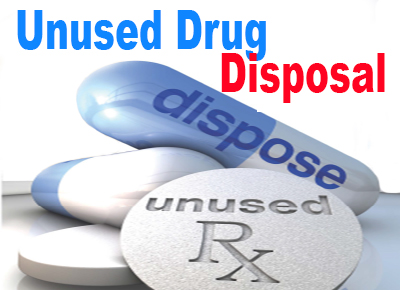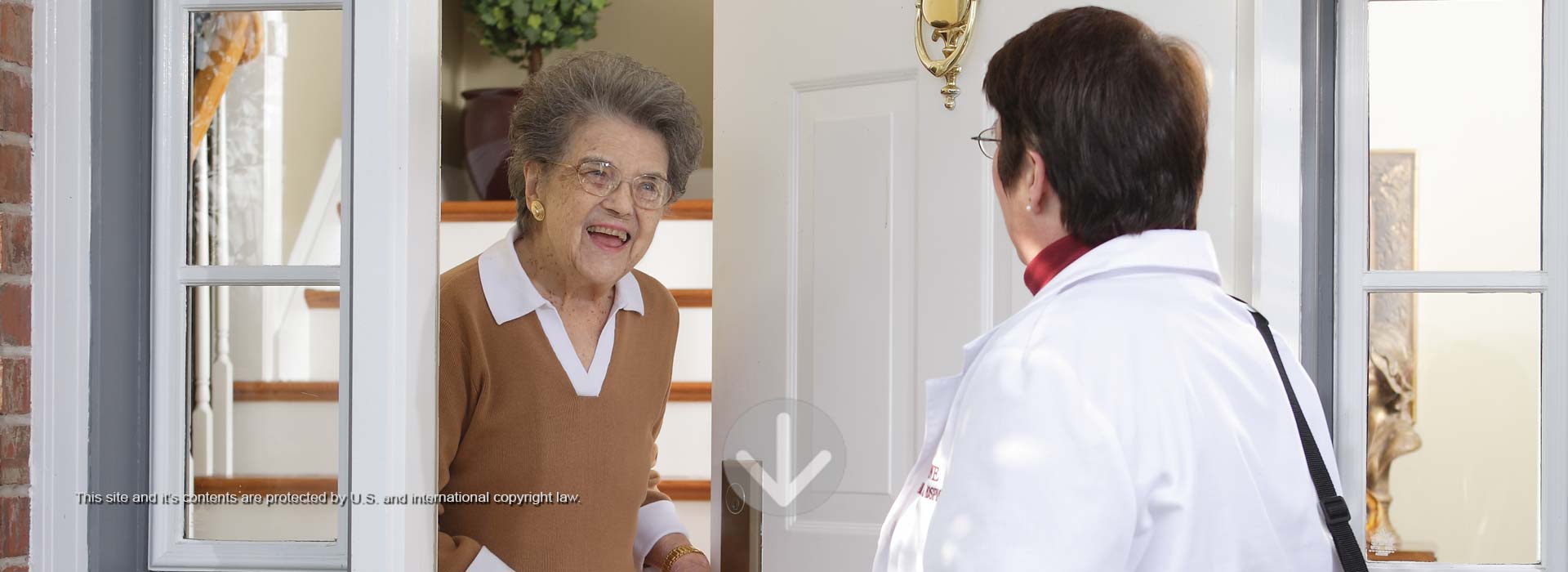Disposal of Unused Medicines: What You Should Know
Overview
Medicines play an important role in treating many conditions and diseases and when they are no longer needed it is important to dispose of them properly to help reduce harm from accidental exposure or intentional misuse. Below, we list some options and special instructions for you to consider when disposing of expired, unwanted, or unused medicines.
Transfer Unused Medicine to Authorized Collectors for Disposal
Consumers and caregivers should remove expired, unwanted, or unused medicines from their home as quickly as possible to help reduce the chance that others may accidentally take or intentionally misuse the unneeded medicine.
Medicine take-back programs are a good way to safely dispose of most types of unneeded medicines. The U.S. Drug Enforcement Administration (DEA) periodically hosts National Prescription Drug Take-Back events where collection sites are set up in communities nationwide for safe disposal of prescription drugs. Local law enforcement agencies may also sponsor medicine take-back programs in your community. Likewise, consumers can contact their local waste management authorities to learn about medication disposal options and guidelines for their area.
Another option for consumers and long-term care facilities, like nursing homes, to dispose of unneeded medicines is to transfer unused medicines to collectors registered with the DEA. DEA-authorized collectors safely and securely collect and dispose of pharmaceuticals containing controlled substances and other medicines. In your community, authorized collection sites may be retail pharmacies, hospital or clinic pharmacies, and law enforcement locations. Some authorized collection sites may also offer mail-back programs or collection receptacles, sometimes called “drop-boxes,” to assist consumers in safely disposing of their unused medicines.
Consumers can visit the DEA’s website for more information about drug disposal, National Prescription Drug Take-Back Day events and to locate a DEA-authorized collector in their area. Consumers may also call the DEA Office of Diversion Control’s Registration Call Center at 1-800-882-9539 to find an authorized collector in their community.
Disposal in Household Trash
If no medicine take-back programs or DEA-authorized collectors are available in your area, you can also follow these simple steps to dispose of most medicines in the household trash:1
1. Mix medicines (do not crush tablets or capsules) with an unpalatable substance such as dirt, kitty litter, or used coffee grounds;
2. Place the mixture in a container such as a sealed plastic bag;
3. Throw the container in your household trash;
4. Scratch out all personal information on the prescription label of your empty pill bottle or empty medicine packaging to make it unreadable, then dispose of the container.
Flushing of Certain Medicines
There is a small number of medicines that may be especially harmful and, in some cases, fatal with just one dose if they are used by someone other than the person for whom the medicine was prescribed. To prevent accidental ingestion of these potentially dangerous medicines by children, or pets, it is recommended that these medicines be disposed of quickly through a medicine take-back program or by transferring them to a DEA-authorized collector. If these disposal options are not readily available, it is recommended that these medicines be flushed down the sink or toilet as soon as they are no longer needed. Click here for a list of medicines recommended for disposal by flushing.
For example, patients in assisted living communities using fentanyl patches for pain should immediately flush their used or unneeded patches down the toilet. When you dispose of these patches and certain other powerful medicines down the sink or toilet you help to keep others safe by ensuring that these medicines cannot be used again or accidentally ingested and cause harm.
You may have also received disposal directions when you picked up your prescription. If your medicine is on this list, and you did not receive information containing disposal instructions along with your prescription, you can find instructions on how to dispose of the medicines at DailyMed, by searching on the drug name and then looking in one of the following sections of the prescribing information:
• Information for Patients and Caregivers
• Patient Information
• Patient Counseling Information
• Safety and Handling Instructions
• Medication Guide
FDA remains committed to working with other federal agencies and medicine manufacturers to develop alternative, safe disposal policies. Below is some additional information about flushing medicine when it is no longer needed. If you have additional questions about disposing of your medicine, please contact us at 1-888-INFO-FDA (1-888-463-6332).
Medicines Recommended for Disposal by Flushing
This list from FDA tells you which medicines you should flush down the sink or toilet when they are no longer needed to help prevent danger to people and pets in the home. Flushing these medicines will get rid of them right away and help keep your family and pets safe.
Links in the list below go to medicine information for consumers that includes specific disposal instructions.
Click here for a printable version of this list (revised October 2015).

----
----
----
----
----
----
----
----

Erwine Home Health and Hospice Inc, 270 Pierce St, Suite 101, Kingston, PA 18704 Phone 570-288-1013 Fax 570 283 3722
This site and it's contents are protected by United States and International copyright law. Reproduction without permission is prohibited.
Privacy Notice

